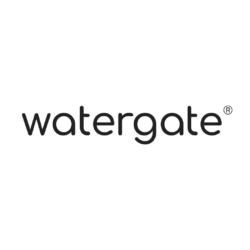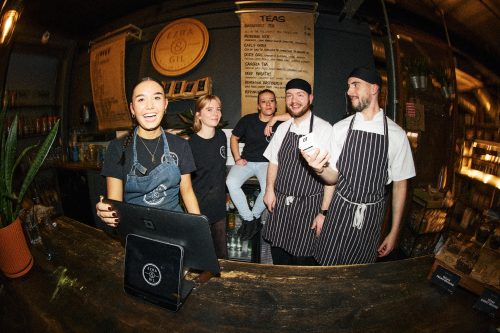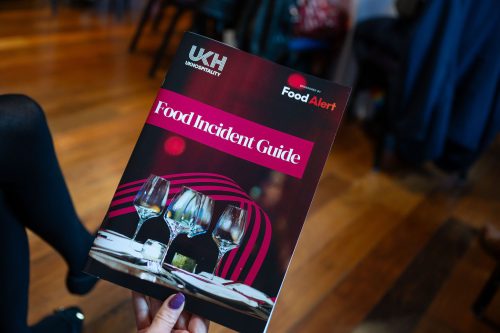The hidden cost sinking UK hospitality – and how we can fight back
By Krystian Zajac, CEO & Founder, Watergate
Many UK hospitality businesses are fighting to stay afloat.
Soaring energy bills, rising food prices, and relentless wage inflation are hammering margins across the sector. Meanwhile, the battle to recruit and retain staff continues, and new regulatory pressures add further complexity to an already fragile business environment. Every pound saved counts. Every inefficiency matters.
And yet, there’s one cost hiding in plain sight that too many operators are still overlooking – water waste.
The water wake-up call
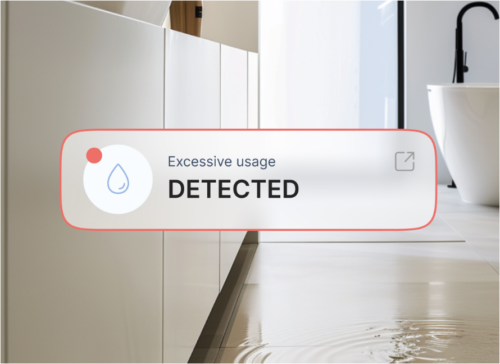
The hospitality sector is one of the UK’s biggest users of water. But let’s be frank: it is also unintentionally leaking millions down the drain – literally.
A single undetected leaking toilet wastes 400 litres a day, costing £524 a year. With Thames Water estimating that 1 in 12 toilets leak, an average 87-bedroom hotel could be losing over £4,000 annually from toilet leaks alone.
Of course, toilets are just one tiny area of water waste for hospitality businesses – in fact, around 30% of all water is wasted. And this is about to get a whole lot more expensive. From April 2025, business water prices will rise by at least 20%, making inefficiencies even more costly.
The numbers are staggering. But so is the opportunity.
Smart water management: the untapped solution
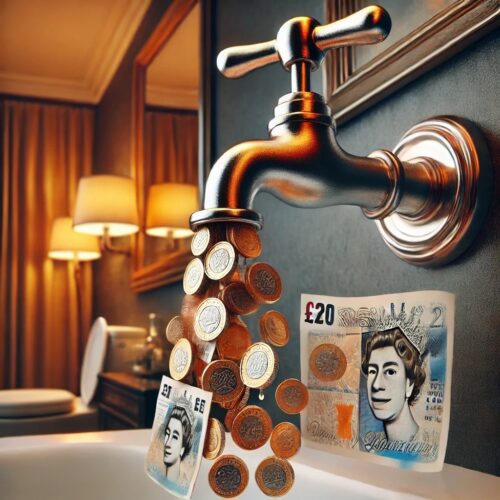
Smart water management: the untapped solution
Every operator I speak to tells me the same thing: controlling costs is their number one priority in 2025. And yet, few realise that water efficiency offers one of the fastest and most cost-effective ways to cut overheads without compromising guest experience.
From automated leak detection to real-time monitoring, today’s smart water management solutions mean businesses can track and control their usage with precision.
In practice, this means:
Lower utility bills – Proactively tackling waste could cut your annual water costs by up to 30%.
Lower energy bills – Wasting hot water doesn’t just increase water costs—it also drives up energy bills, as more power is needed to heat and pump water that ultimately goes unused.
Reduced insurance costs – Leaks and water damage are among the top causes of soaring insurance excesses and premiums.
Less lost revenue – If a serious leak strikes, kitchens, bedrooms or entire venues can be shut down for weeks resulting in major business interruption revenue losses.
Stronger sustainability credentials – Guests (and investors) demand sustainability, and water waste is a red flag.
This isn’t just theory. Hotels, restaurants, and pubs across the UK are already seeing significant annual savings simply by taking control of their water use.
Cutting costs without cutting corners
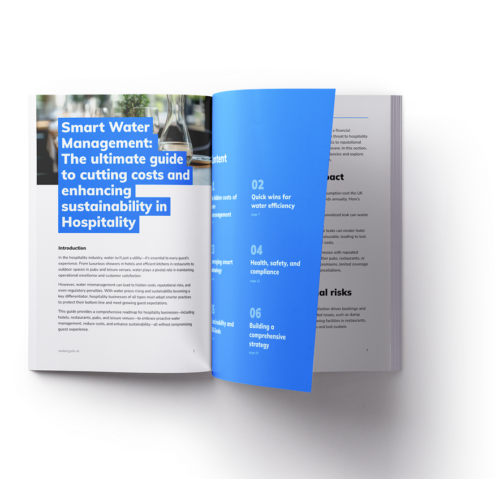
The good news? Unlike energy, where prices are out of our control, water savings come down to smarter management. And the best part—it doesn’t require major operational changes.
In our latest free eBook, “Smart Water Management: The Ultimate Guide to Cutting Costs in Hospitality”, we break down the practical steps you can take right now to drive immediate savings. From quick wins like fixing leaks and installing low-flow fixtures to game-changing smart technology, this guide is a must-read for any hospitality operator looking to cut costs, protect their business, and stay ahead of the curve.
Because in this challenging economic climate, standing still isn’t an option.
The hospitality sector is up against some of the toughest financial pressures in decades. But not all cost-cutting strategies are about sacrifice—some are about smarter choices.
Water waste is a silent drain on profits. The businesses that act now to tackle it will come out stronger, more resilient, and more sustainable in the long run.
Don’t let unnecessary costs sink your business.
Download the free guide today from Watergate Ai and start saving where it really counts.

